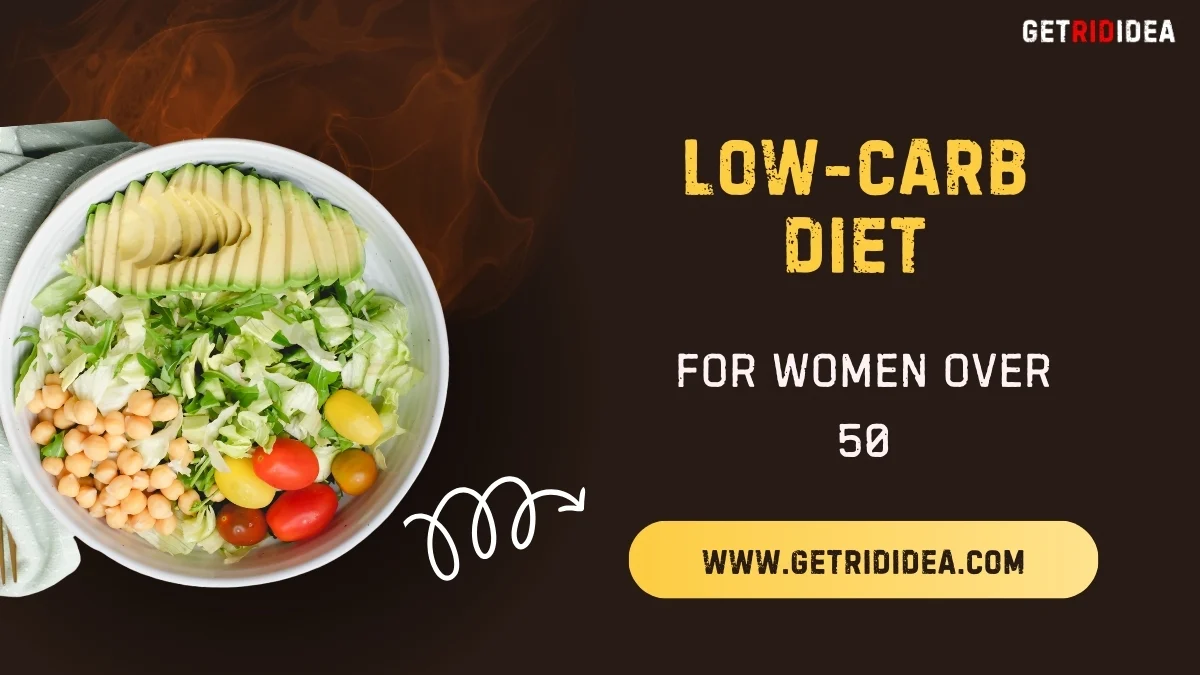A low-carb diet is popular for people looking to lose weight, improve their metabolism, or enhance athletic performance. However, its effects on cholesterol levels and, more broadly, on heart health are still widely discussed. In this article, we’ll examine how a low-carb diet can affect cholesterol levels, the science behind these effects, and how you can approach it for the best heart health outcomes.
- 0.1 What is a low-carb diet?
- 0.2 How a Low-Carb Diet Affects Cholesterol Levels
- 0.3 Low-Carb Diet for Athletes: Boost Performance & Improve Recovery
- 0.4 Understanding the Complexities of Low-Carb Diets and Cholesterol
- 0.5 Low-Carb Diet for Women Over 50: Boost Energy, Manage Weight, and Improve Health
- 0.6 Should You Try a Low-Carb Diet for Better Cholesterol Levels?
- 0.7 Conclusion
- 0.8 Related posts:
- 1 Low-Carb Vegetarian Meal Ideas: Healthy and Delicious Recipes
- 2 7 Delicious Low-Carb Snacks for Weight Loss
- 3 Boost Mental Clarity with a Low-Carb Diet: Unlock Focus, Energy, and Sharpness
What is a low-carb diet?
A low-carb diet limits carbohydrate intake and emphasizes fats and proteins for energy. It’s all about reducing foods like bread, pasta, rice, and sugary snacks to help the body burn fat instead of carbohydrates. There are many variations of the low-carb diet, from moderate reductions in carbs to the more restrictive ketogenic diet, where carbs are kept to less than 50 grams a day.
While people often follow low-carb diets to manage weight or blood sugar, it’s important to understand how this approach impacts cholesterol levels and overall heart health.
How a Low-Carb Diet Affects Cholesterol Levels
Cholesterol is an important factor when it comes to heart health. Understanding how a low-carb diet can influence cholesterol is key to deciding if it’s the right choice for individuals, especially for those who are at risk for heart disease.
Increase in HDL Cholesterol (Good Cholesterol)
One of the main benefits of a low-carb diet is the increase in HDL (high-density lipoprotein) cholesterol, commonly known as “good” cholesterol. HDL cholesterol helps to clear excess cholesterol from the bloodstream and transports it to the liver to be processed and removed. Higher HDL levels are generally linked to a lower risk of heart disease.
Research published in The American Journal of Clinical Nutrition shows that people following low-carb diets tend to experience significant increases in HDL levels, which supports heart health.
Changes in LDL Cholesterol (Bad Cholesterol)
Low-density lipoprotein (LDL), or “bad” cholesterol, is often associated with heart disease since higher levels can lead to plaque buildup in the arteries. The effects of a low-carb diet on LDL cholesterol are a bit more complicated.
- Larger LDL Particles: Some individuals on low-carb diets see an increase in LDL cholesterol, but it’s often in the form of larger, less dense particles, which are generally considered less harmful. Larger LDL particles are less likely to get trapped in the arterial walls and form plaque than smaller, denser LDL particles.
- Total LDL Levels: In certain cases, particularly with very low-carb diets like keto, overall LDL levels may rise. This has raised concerns for those with existing cardiovascular conditions. However, this increase is often balanced by other improvements, such as lower triglycerides and higher HDL levels.
Reduction in Triglycerides
Triglycerides are a type of fat in the blood, and elevated levels are a well-known risk factor for heart disease. One of the key benefits of a low-carb diet is that it helps to reduce triglyceride levels. Reducing carb intake, especially refined sugars and starches, lowers insulin levels, which in turn reduces triglyceride production.
Studies, including one from the Journal of Clinical Lipidology, have shown that low-carb diets significantly reduce triglyceride levels, improving heart health.
Improvement in Insulin Sensitivity and Inflammation
Insulin resistance and inflammation are closely linked to heart disease. By cutting back on carbohydrates, particularly processed ones, a low-carb diet can improve insulin sensitivity and reduce inflammation. This positively affects cholesterol levels, as insulin resistance and inflammation are often tied to higher LDL cholesterol and triglycerides.
Understanding the Complexities of Low-Carb Diets and Cholesterol
Although many studies support the benefits of a low-carb diet, it’s important to recognize that the effects on cholesterol can vary from person to person. Factors such as genetics, the types of fats consumed, and overall diet quality all play a role in determining cholesterol outcomes.
- Fat Quality Matters: The kind of fats you eat on a low-carb diet is crucial. Diets rich in healthy fats, like those found in olive oil, avocado, and fatty fish, tend to improve cholesterol profiles. On the other hand, diets high in saturated fats from processed meats or full-fat dairy may not offer the same heart-health benefits and could potentially raise LDL levels in some people.
- Long-Term Effects: Most research on low-carb diets and cholesterol focuses on short- to medium-term effects. More long-term studies are needed to fully understand the impact of extended low-carb eating on cardiovascular health and cholesterol.
Should You Try a Low-Carb Diet for Better Cholesterol Levels?
If you’re considering a low-carb diet to improve your cholesterol, it’s important to take a personalized approach:
- Talk to a Healthcare Professional: Before starting any new diet—especially if you have heart disease or are at risk—be sure to talk with a healthcare provider or dietitian. They can help you create a balanced, low-carb eating plan tailored to your needs.
- Focus on Healthy Fats: To get the most heart-healthy benefits from a low-carb diet, focus on healthy fats. Include foods like fatty fish (salmon, mackerel), olive oil, and avocados while limiting processed meats and trans fats.
- Keep Track of Your Health: Regular check-ups to monitor cholesterol levels and overall heart health are important. Blood tests every few months can help track your cholesterol, triglycerides, and other key markers to ensure the diet has the desired effects.
Conclusion
A low-carb diet can positively affect cholesterol by boosting HDL cholesterol, lowering triglycerides, and improving insulin sensitivity. However, its impact on LDL cholesterol varies, with some people experiencing increased LDL levels. The key to benefiting from a low-carb diet while maintaining heart health is to focus on the quality of fats you eat and monitor your health regularly. If you have heart issues or concerns about cholesterol, it’s best to consult a healthcare provider to ensure the diet works for you.



